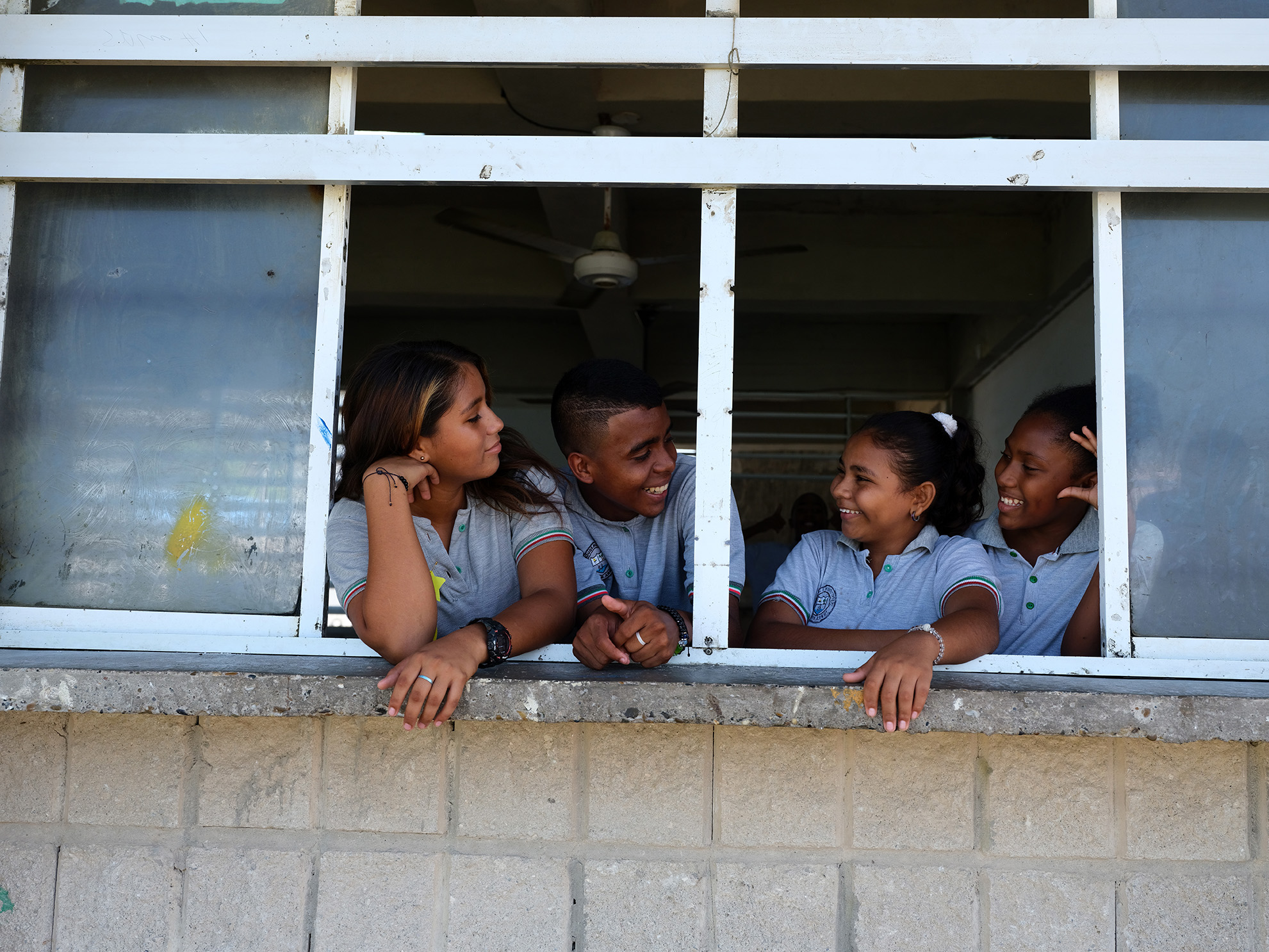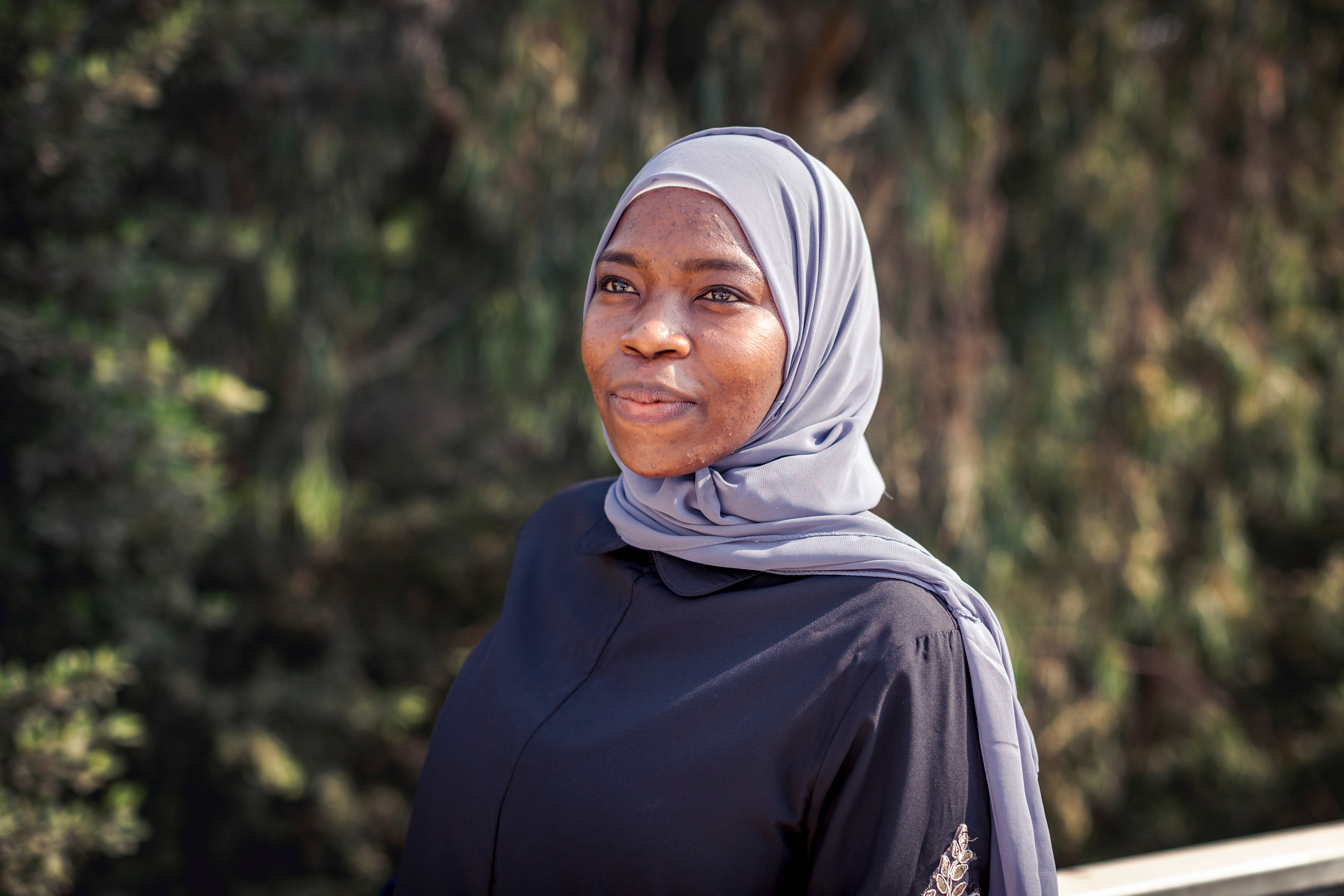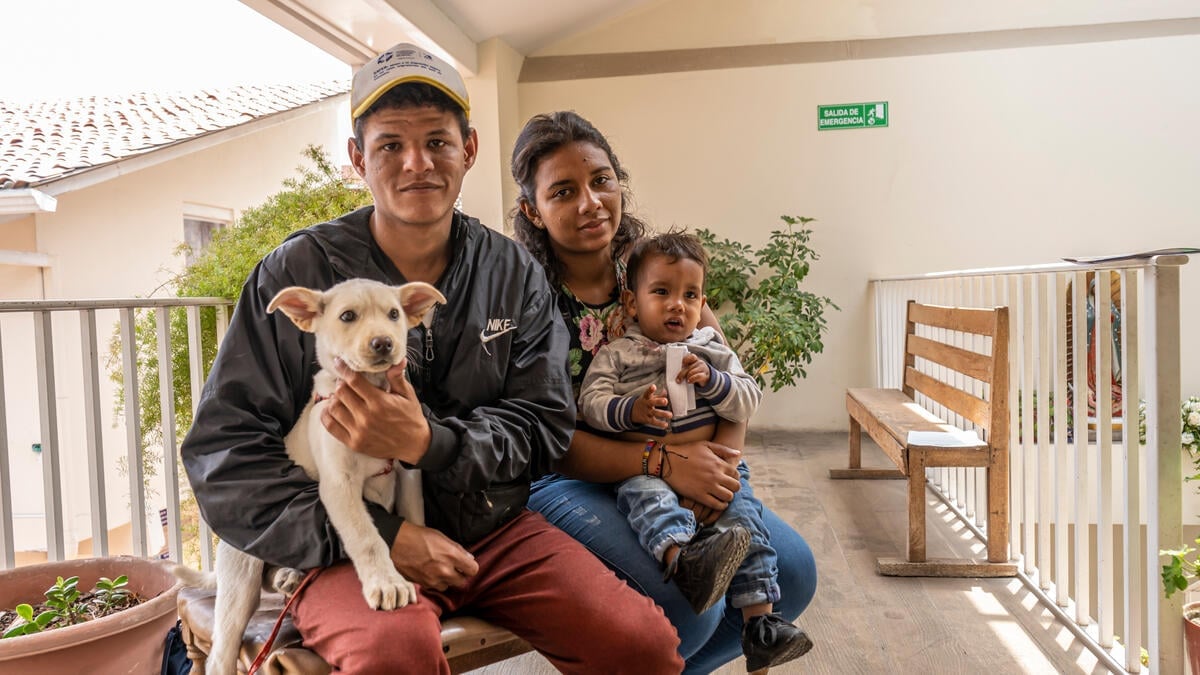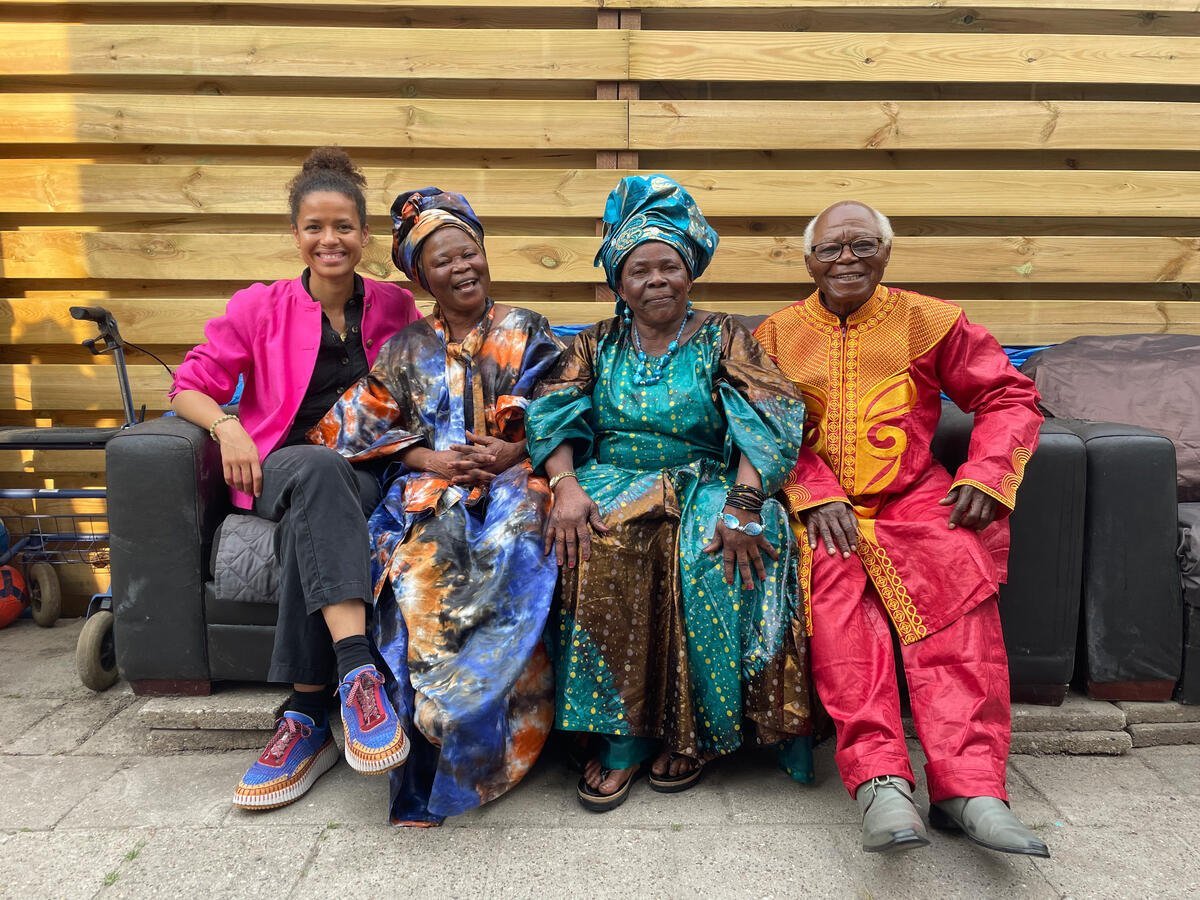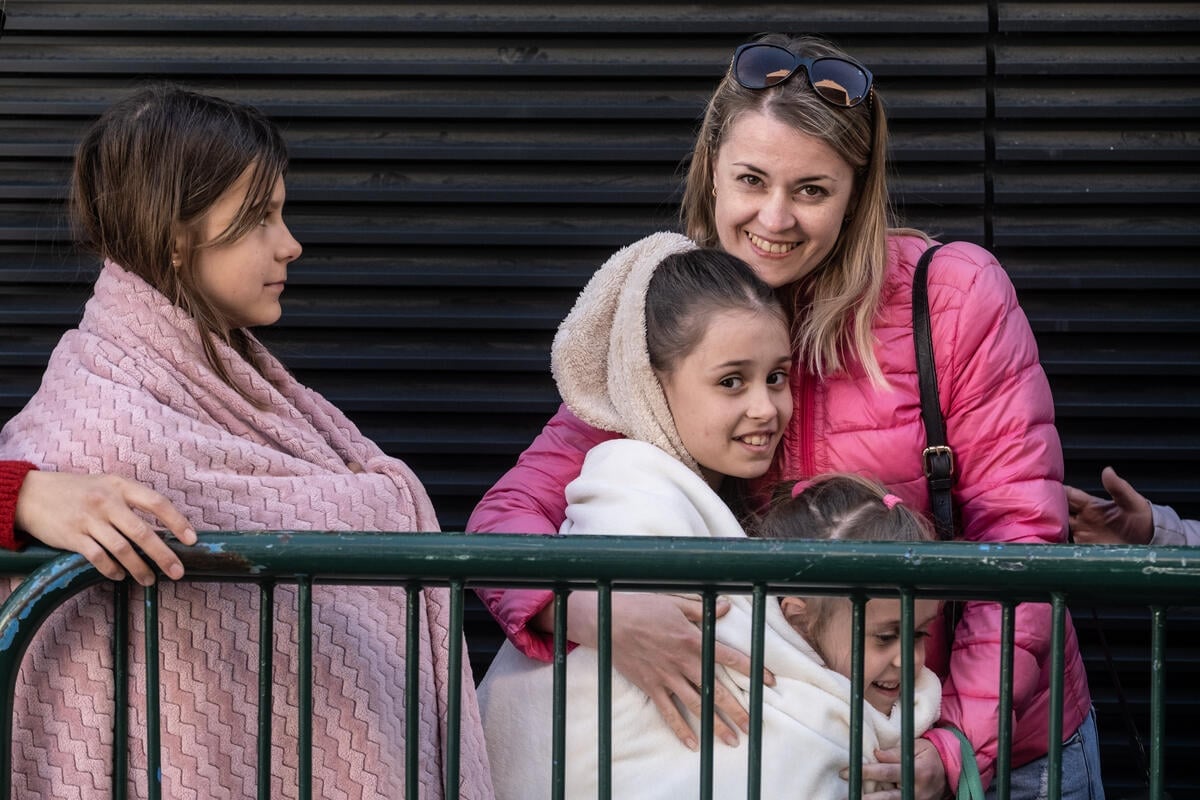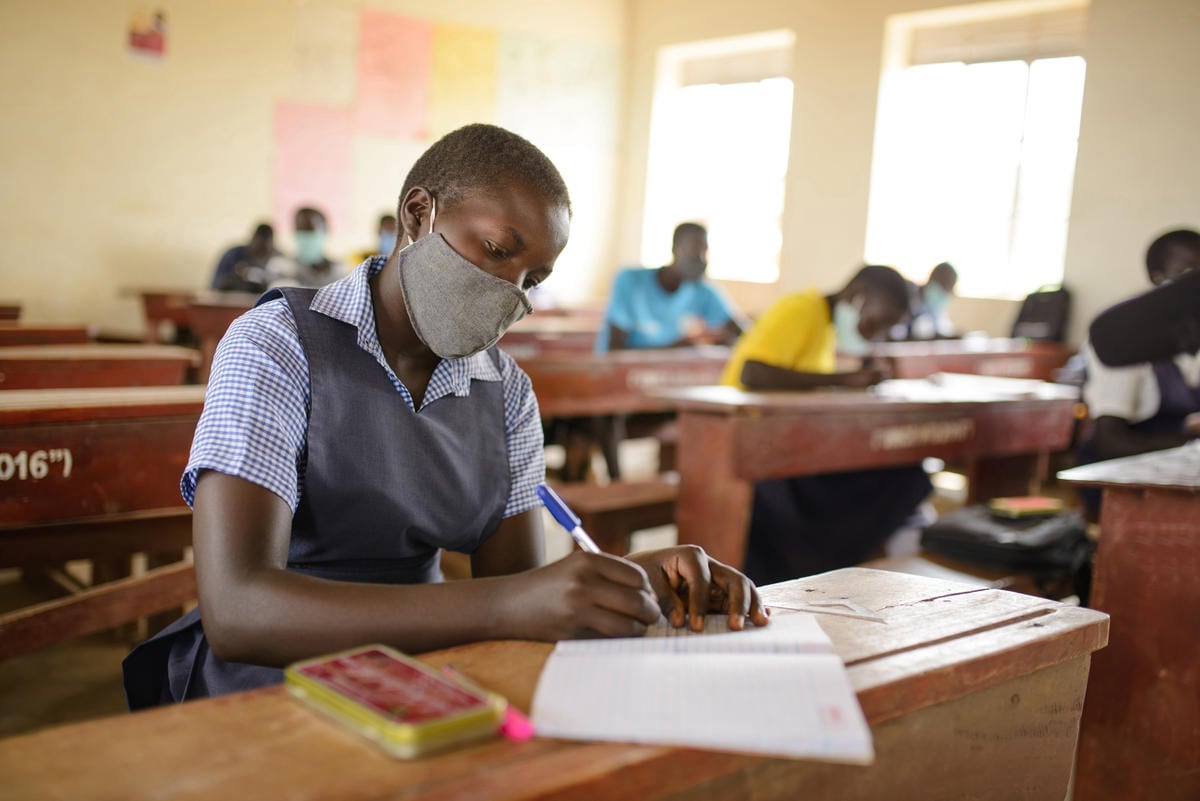English classes help build confidence among refugees from Bhutan
English classes help build confidence among refugees from Bhutan

BELDANGI II CAMP, Nepal, October 21 (UNHCR) - At an age when most people are enjoying retirement, Jay has started going to school to prepare for his future. The 64-year-old is among the more than 9,000 refugees from Bhutan who have attended spoken English classes funded by UNHCR and implemented by Caritas Nepal in seven refugee camps in eastern Nepal.
The classes are held to help ensure the best possible start for people who have opted for resettlement in a third country because they are unable, or unwilling, to remain in Nepal. That said, the classes are open to anyone aged 25 or over, regardless of whether or not they want to be resettled.
Most of the students are illiterate or semi-literate and are attending school for the first time. ''I never imagined that I would be able to speak English,'' says former farmer Jay, siiting outside his small home of mud and thatch in Beldangi II camp. He had never been to school in his life before enrolling in the English classes.
"After attending the classes, I realized that if a person is determined, they learn anything regardless of their age," he said. "I have also gained confidence and am now able to initiate a conversation with strangers, including foreigners, without fear," added Jay, who arrived in Nepal in 1992 and heads a family of 13 people. They will all be starting a new life in the United States after years of what Jay describes as enforced idleness in Beldangi.
Januka, 51, is one of Jay's classmates. She can't write in Nepali, but is really getting to grips with spoken and written English after studying the language for the past three-and-a-half months.
"I'm able to count and calculate in English, which will help me when doing the accounts here and in a resettlement country," she said. Januka is the family housekeeper, but her new skills make her feel even more useful.
The English classes were launched in April 2008, a few months after Nepal said it would allow the refugees originating from Bhutan to apply for resettlement in a third country. The United States said it was ready to accept some 60,000 of the refugees, most of whom arrived in Nepal in the early 1990s.
To date, about 22,000 have left the camps in Nepal and started new lives overseas. That includes about 19,000 in the United States, more than 900 in Australia, some 870 in Canada, 310 in Norway, 305 in Denmark, almost 300 in New Zealand amd more than 120 in the Netherlands.
"These classes are run to enable illiterate and semi-literate refugees to conduct a basic conversation in English," said Rianawati Rianawati, head of UNHCR's sub-office in the eastern Nepal town of Damak. "These [language] skills will hopefully help them integrate in their resettlement country." Rianawati said the classes had also helped build confidence among the elderly and the illiterate because they could now express themselves in English.
Chhoki Dolma Tamang, who coordinates the classes in the camps for Caritas, said marginalized and vulnerable people were particularly encouraged to join the classes because they stood to benefit the most. "We go from hut to hut looking for these people and encourage them to join the English classes," she said.
Most of the learners have expressed interest in resettement, but there are a few who still dream of going back to Bhutan. ''Knowing English will be helpful regardless of where we are," Jay noted.
It's certainly proving useful for those who have already been resettled, such as 43-year-old Kumari, who left for the United States last July along with seven family members.
"I am happy that I learnt English before I came to Fort Worth in Texas. With my basic English, it was easy to communicate with people," said Kumari, reached by telephone. She's optimistic about finding a job and earning a regular wage after years of being dependent on others.
By Bimal Babu Khatri in Beldangi II Camp, Nepal


